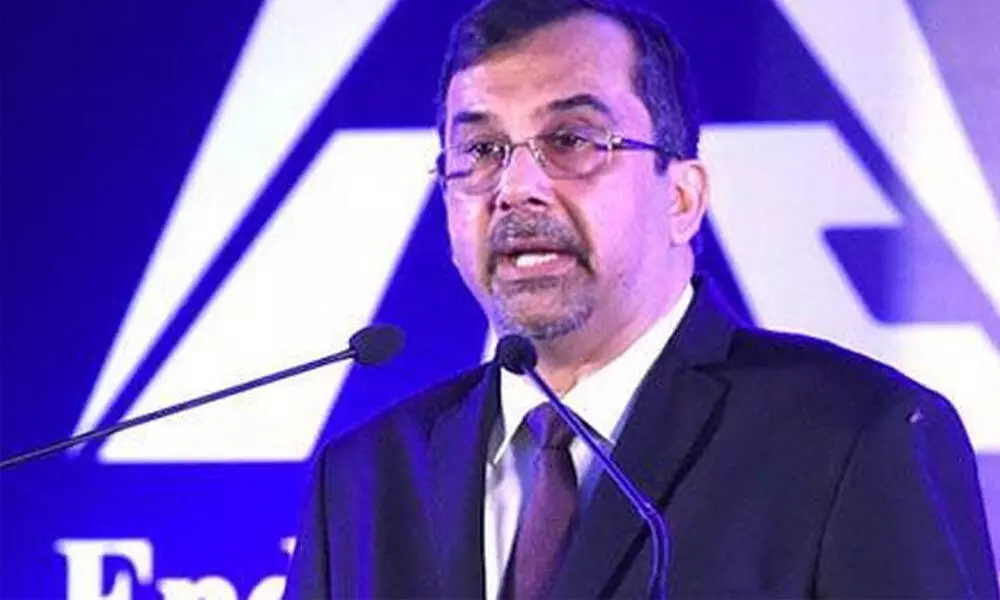ITC turning FMCG, hotels, agri segments into its main growth drivers
Company’s Chairman Sanjiv Puri is shepherding the ‘Next’ strategy for its next horizon of growth through bold acquisitions, and disruptive digital innovation
image for illustrative purpose

New Delhi: Diversified consumer goods conglomerate ITC appears to be closing in on turning its fast-moving-consumer-goods (FMCG), agriculture and hotel segments as its main growth drivers, with chairman Sanjiv Puri shepherding the 'Next' strategy for its next horizon of growth through bold acquisitions, and disruptive digital innovation.
This new strategy is aimed at ensuring that the ITC remains future-oriented, consumer-centric, and nimble to create enduring value for stakeholders, something that the financial results are mirroring with FMCG and agriculture contributing nearly half of its total revenues in the April-June quarter.
The FMCG segment has been driven by higher demand for hygiene products, fragrances, spices, snacks, agarbattis and dairy products, with Salvon standing out as a growth engine of sorts.
ITC acquired Savlon from Johnson & Johnson in 2015, foraying into the disinfectant and antiseptic products market. Savlon crossed Rs 1,200 crore in consumer spends in 2020-21, growing more than 13 times since acquisition, making it the largest brand in the company's personal care products portfolio, overtaking Vivel.
ITC has launched over 120 new products over the last one year, with product innovations in hygiene, nutrition and convenience segments. These include Savlon's foray into surface and cloth disinfectant sprays, 'neem' based cleaning solutions Nimwash and Nimeasy, convenience-focused products such as ITC Master Chef Frozen Snacks, and scale up nascent categories and products such like B Natural juices, Fabelle chocolates amongst others.
In four years from 2016-17 to 2020-21, the FMCG segment's earnings before interest, taxes, depreciation and amortisation (EBITDA) margins have improved by 640 bps.
FMCG on fast lane
The company today is one of the largest incubators of world-class Indian brands. ITC FMCG business has garnered consumer spends of over Rs 22,000 crore and delighting more than 150 million households. Scaling up and fortification of existing growth platforms consisting of megabrands is an essential cog in the wheel of ITC's next strategy. The company has expanded its purpose-led brands like Savlon, Aashirvaad, and Sunfeast into adjacent categories with remarkable success. These brands have immense headroom to grow given the relatively lower household penetration and rising per capita income. ITC is exploring more value accretive inorganic opportunities as an additional pillar of growth.
Puri's strategy to make ITC future-ready manifests in Life Sciences and Technology Centre (LSTC). LSTC helped ITC to launch 120 products amid the pandemic to meet emerging preferences. Towards this goal, the company has launched 9 state-of-the-art integrated consumer goods manufacturing facilities (ICML) to create structural advantages and drive enhanced competitiveness is also worth mentioning. The new-age consumer is a digital native with extensive engagement in social and e-commerce platforms. Recognizing this, ITC is identifying emerging trends in real-time through its Marketing Command Centres called 'Sixth Sense' to speedily launch differentiated products as also creatively engage with consumers. Under the 'Next' strategy, Puri has clearly sought to explore opportunities to craft disruptive business models anchored at the intersection of digital and sustainability. It is deploying a smart ecosystem with an integrated real-time operations platform across the organization to enable next-generation supply chains and smart manufacturing with digitally enabled factories.
The company has adopted multi-dimensional digital interventions for smart sourcing, smart logistics across businesses, and Industry 4.0 implementation in manufacturing. This is in addition to customized apps to facilitate digital ordering and trade engagement.
It has fast-tracked its journey in e-commerce, to meet the growing preference for 'contactless shopping'. This is besides strengthening the direct-to-consumer platform, 'ITC e-Store' to reach consumers in newer geographies and introducing more 'digital first' brands to leverage the growing e-commerce space.
ITC under Puri's stewardship is unwavering in its resolve to build a formidable FMCG business. Revenues from its FMCG business during the quarter stood at Rs 3726 crore, accounting for 25 per cent of the quarterly revenues. The agriculture segment turned in revenues of Rs 4,091 crore, accounting for 28 per cent of the company's total quarterly revenues of Rs 14,649 crore before netting out inter-segment revenues of Rs 1,764 crore.

